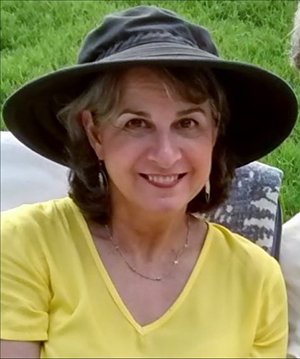Kathy Manos Penn is a native of the “Big Apple,” who settled in the “Peach City” – Atlanta. A former English teacher now happily retired from a corporate career in communications, she writes a weekly column for the Dunwoody Crier. Read her blogs and purchase her book, “The Ink Penn: Celebrating the Magic in the Everyday” on her website theinkpenn.com.
I grew up in New York City and didn't move to the South until the eighth grade. In NYC, it was routine to inquire about someone's heritage, as in whether they were Italian, Greek, Irish, Jewish, whatever. I'm one-half Greek and have always been inordinately proud of that fact. I'm not sure why. Perhaps I was proud that my Greek grandparents were brave enough to come here to start new lives; perhaps I thought it made me more interesting or special. Almost everyone I knew in NYC was something other than White Anglo-Saxon Protestant.
My upbringing is surely why I was shocked and dismayed by this headline in the Atlanta Journal-Constitution: "A Valid Question? Is asking 'where are you from?' the same as saying 'you don't belong here'?" I didn't have to read the article to know that the answer was going to be yes.
How on earth have we come to this? I recall being asked when I moved to Georgia at age 13 whether I was Spanish, but I thought it was because my maiden name Manos means hands in Spanish. I simply replied that I was Greek and took no offense. Years later someone told me they thought I was Hispanic because I looked like Gloria Estefan. My only problem with that comparison was that I thought her nose was bigger than mine, and I've always been sensitive about the size of my nose.
I realize times have changed across our country. Not everyone is accepting of immigrants, and often we Americans generalize about ethnic or religious groups and attribute certain traits to everyone in that group. Yes, we've all heard unpleasant things said about Mexicans, Muslims, Indians, you name it. Why was it, though, that when I grew up, we routinely teased each other and laughed about our various traits: Greeks owned greasy spoons, Italians were in the Mafia, the Irish drank, the Jews held on to their money.
The companion article titled "Microaggression: The indignities of daily life" explained that attributing negative traits to a cultural group is a form of microaggression. Okay, I can buy that, but apparently the same can be said of positive traits. One example was an Asian American taking offense at someone remarking that she must be good at Math. Plenty of people comment that I must be a good cook because I'm Greek, and I am. Even if I weren't, I'd laugh it off. How is that any different than thinking all Indian Americans are good spellers since so many youngsters with that background have done well in spelling bees? None of these are bad traits.
When I used to visit my local bank branch, I often asked the tellers what their heritage was-not where they were from. I knew anyone could be from New York or Florida, but I was curious about the accent I was hearing. I knew they were legal immigrants because they worked for the bank, so I was in no way implying they didn't belong or might be illegal, as the article says.
Today I asked a woman at a local event whether her name was Greek. She told me it was Cuban and often mistaken for Greek. When I told her I almost didn't ask because of the article I'd read, she was astonished that anyone would think these kinds of interactions would be problems.
How boring it would be if we were all alike. Apparently, now we are to treat everyone as though we are. When did we get so thin-skinned? Even those who take issue with the microaggression topic and think it may have gone too far agree that microaggressions occur and that "these indignities can be invisible to those who make them and often reveal ugly unconscious biases."
I'd say we all have biases, no matter to which cultural group we may belong. In the 80's, when a Black human resources professional commented to a white friend of mine, "Too bad you're not Black, you could go far," was that a microaggression or was it just plain rude? Reverse the circumstances and see what your answer is.
If people are truly offended and hurt, by what seem to me like innocent questions or comments with no malice behind them, I am sincerely sorry. We are living in increasingly strange times, and I'm not sure what this situation says about us as a society. All I know is we are fast approaching the time when we can no longer carry on "safe" conversations with casual acquaintances, people in the checkout line, or at parties and community events. And I ask, "How will that help us to get along better and become more accepting of others?"

























